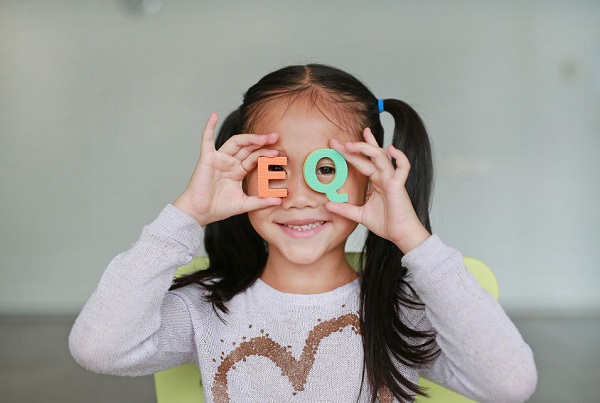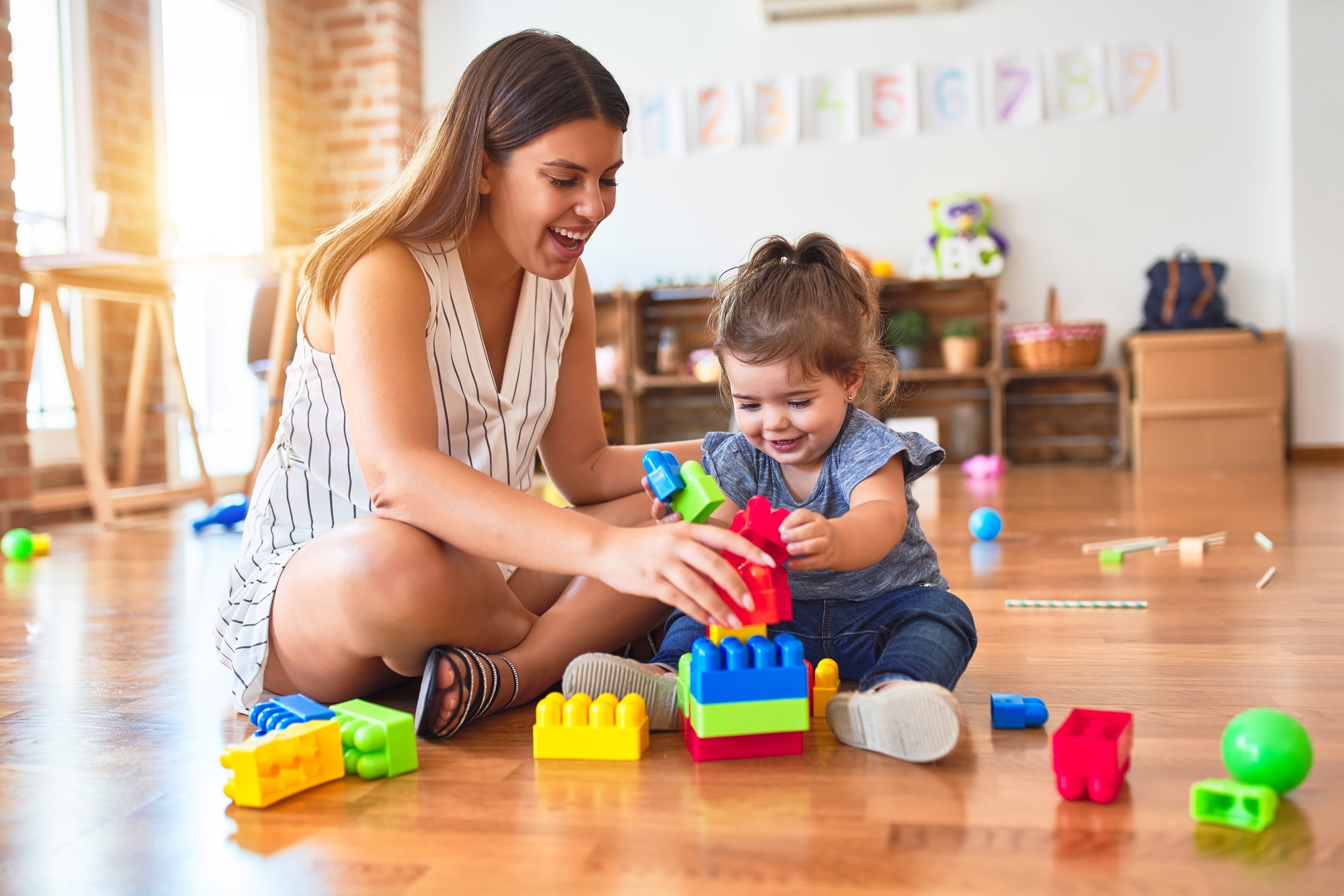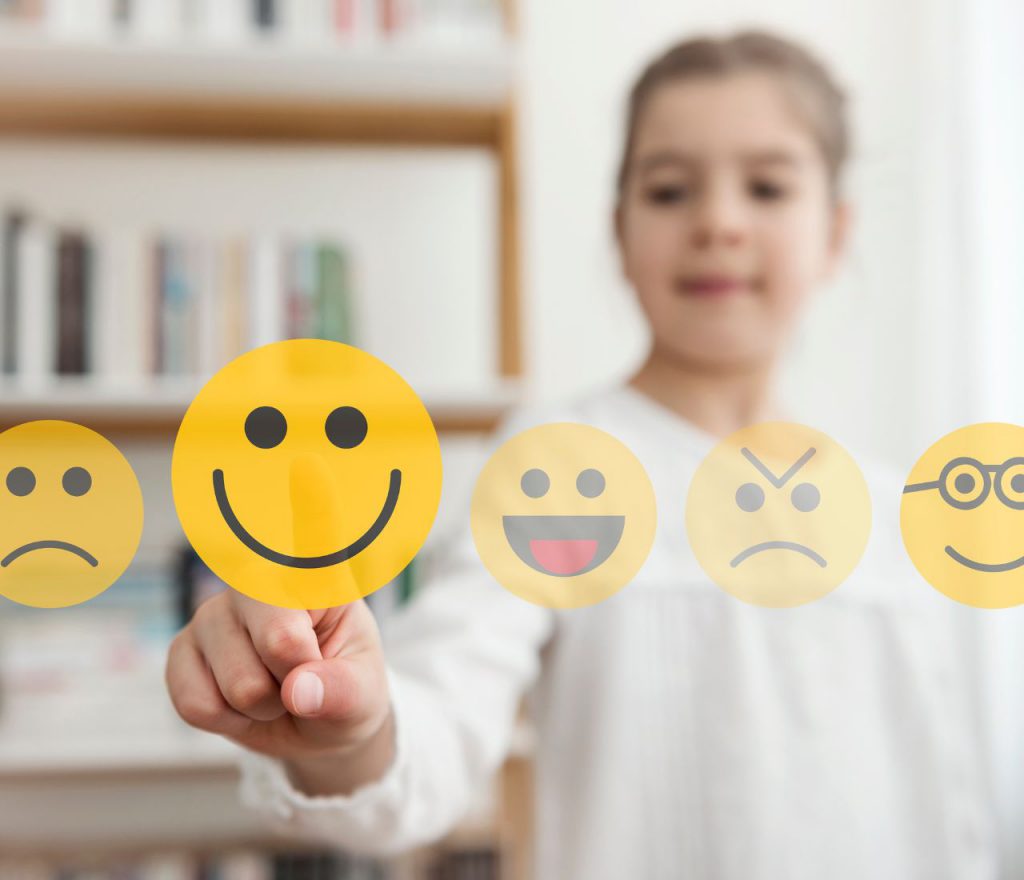What Shapes Emotional Intelligence in Young Children?
Parental behaviors and social interactions are pivotal in shaping your child’s emotional intelligence. Through modeling coping mechanisms, love, and support, you influence their emotional regulation and empathy skills. Positive peer interactions and nurturing home environments foster emotional intelligence growth, while harsh parenting can hinder it. Early experiences, role models, and even cognitive development impact how your child understands and manages emotions. By understanding these influences, you can help your child develop essential skills for social and emotional well-being.
Key Takeaways
- Parental behaviors and reactions greatly influence emotional intelligence development.
- Positive social interactions, especially with peers, contribute to higher emotional intelligence levels.
- Early childhood experiences, like emotional bonding with caregivers, impact emotional intelligence.
- The educational environment, including teacher-student interactions, significantly shapes emotional intelligence.
- Role modeling, both within the family and community, plays a crucial role in emotional intelligence development.
Parental Influence

Parental influence greatly shapes the development of emotional intelligence in young children, serving as an essential foundation for their social and emotional well-being. Research indicates that children learn how to manage and express their emotions by observing their parents’ behaviors and reactions, a concept known as parental modeling.
When parents exhibit important coping mechanisms and emotional regulation skills, children are more likely to internalize these behaviors and apply them in their own lives. On the contrary, if parents struggle with managing emotions or display aggressive responses, children may mirror these negative patterns.
Moreover, creating a nurturing environment at home is essential for fostering emotional intelligence in children. When parents provide love, support, and encouragement, children feel secure and develop a strong sense of self-worth. This sense of security allows children to explore their emotions freely and learn how to communicate effectively.
In contrast, a lack of emotional support or harsh parenting styles can hinder the development of emotional intelligence, leading to difficulties in forming healthy relationships and managing stress. Parental influence through modeling behavior and creating a nurturing environment plays a significant role in shaping a child’s emotional intelligence.
Social Interactions
Observing and engaging in social interactions from a young age plays a significant role in shaping a child’s emotional intelligence development. Social interactions provide a platform for children to learn essential skills such as empathy, communication, and conflict resolution.
Through interactions with peers, siblings, or adults, children begin to understand social cues, emotions, and different perspectives. Play therapy, for example, is a valuable tool that utilizes social interactions to help children express their emotions, improve social skills, and enhance their emotional intelligence.
Research indicates that children who engage in positive social interactions tend to have higher emotional intelligence levels. By participating in social situations, children learn to regulate their emotions, understand others’ feelings, and develop healthy relationships.
Encouraging children to take part in group activities, team sports, or collaborative games can foster the development of necessary social skills, which are fundamental to emotional intelligence. As a result, creating opportunities for children to engage in various social interactions is essential for their emotional intelligence growth.
Early Childhood Experiences
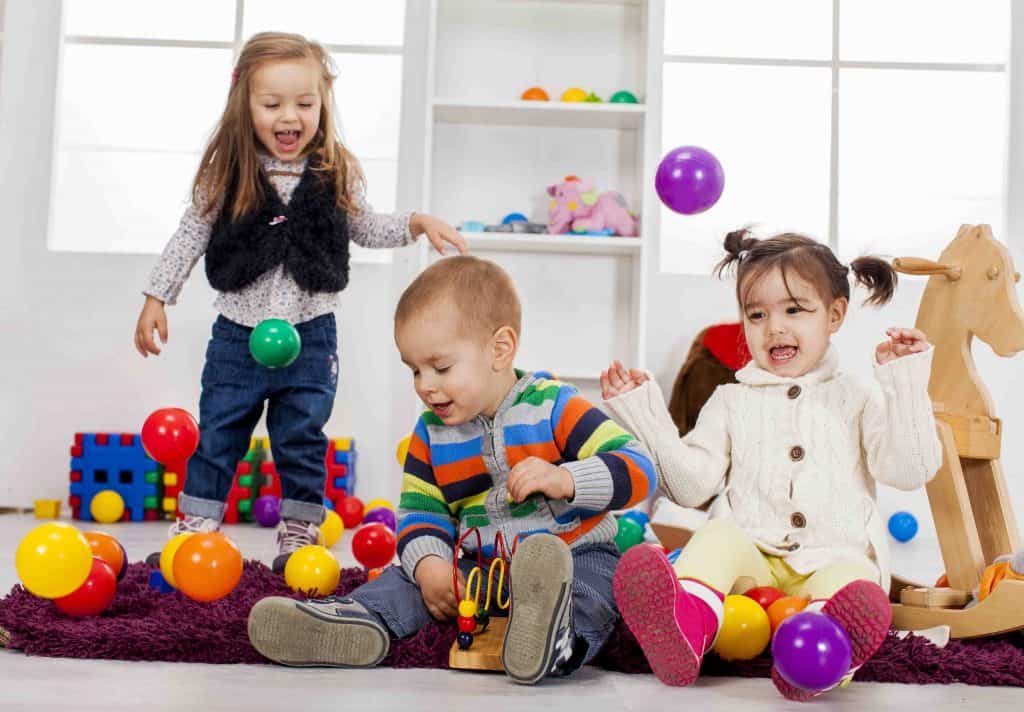
Your early childhood experiences play a crucial role in shaping your emotional intelligence.
The bond you form with your family members can greatly impact how you navigate and understand emotions.
Interactions with peers and guidance from teachers also contribute to the development of your emotional intelligence, influencing how you manage relationships and handle various social situations.
Family Bond Impact
Establishing a strong emotional bond with caregivers during early childhood greatly influences a child’s development of emotional intelligence. Sibling dynamics play an important role in shaping emotional bonding within the family. Positive relationships with siblings can enhance a child’s ability to understand and regulate their emotions, leading to higher emotional intelligence levels.
Family rituals also contribute considerably to emotional bonding. Engaging in regular activities like family meals, bedtime routines, or special traditions fosters a sense of security and attachment within the family unit, influencing the child’s emotional development positively.
Attachment styles developed in early childhood, influenced by the quality of relationships with primary caregivers, impact emotional intelligence. Secure attachments characterized by trust and responsiveness from caregivers tend to result in children who are more emotionally aware and capable of forming healthy relationships. In contrast, insecure attachments may hinder emotional intelligence growth, potentially leading to difficulties in understanding and managing emotions.
Hence, the family bond, including sibling dynamics, family rituals, and attachment styles, plays an important role in shaping a child’s emotional intelligence during their formative years.
Peer Interaction Influence
Peer interactions during early childhood greatly influence a child’s emotional intelligence development. These interactions play an essential role in shaping social skills and emotional regulation.
Research suggests that children learn a great deal about managing their emotions and understanding others through interactions with their peers. For example, when children engage in cooperative play or resolve conflicts with friends, they’re practicing important social skills such as empathy, communication, and perspective-taking. These experiences help children learn how to regulate their own emotions and respond effectively to the emotions of others.
Studies have shown that positive peer interactions can lead to higher emotional intelligence in children, as they learn to navigate social situations with confidence and empathy. On the other hand, negative peer interactions, such as bullying or exclusion, can have a detrimental impact on a child’s emotional development.
Therefore, fostering positive peer relationships and providing opportunities for children to practice social skills in a supportive environment are essential for promoting healthy emotional intelligence in early childhood.
Teacher Guidance Significance
Children’s emotional intelligence development in early childhood is greatly influenced by the guidance provided by teachers and the experiences they facilitate in the classroom setting. Teacher mentorship plays an essential role in helping young children learn emotional regulation skills.
Research suggests that teachers who actively model and teach strategies for managing emotions can have a substantial impact on children’s ability to navigate their feelings effectively. By providing a supportive and nurturing environment, teachers can help children develop a strong foundation for emotional intelligence.
Furthermore, classroom dynamics play an important role in empathy development. Teachers who encourage collaboration, communication, and understanding among students create an environment where empathy can flourish. Through activities that promote perspective-taking and emotional awareness, teachers can foster empathy skills in young children.
Studies have shown that experiencing empathy in the classroom setting not only enhances social interactions but also contributes to the overall emotional intelligence of children. Hence, the significance of teacher guidance in shaping emotional intelligence in early childhood can’t be understated.
Educational Environment

As you consider the educational environment’s impact on emotional intelligence in young children, it’s essential to examine the classroom influences and teacher-student interactions.
Research suggests that the classroom setting plays a significant role in shaping a child’s emotional intelligence development, with factors such as classroom climate, social dynamics, and learning experiences all contributing to this process.
Moreover, the quality of teacher-student interactions has been found to be a key determinant of children’s emotional regulation, social skills, and overall emotional well-being.
Classroom Influences on EI
The educational environment profoundly influences the development of emotional intelligence in young children. Classroom dynamics play a vital role in shaping emotional regulation skills. When children engage in group activities, such as collaborative projects or team sports, they learn to navigate social interactions, manage their emotions, and communicate effectively with peers. Through these experiences, children develop essential skills like empathy, perspective-taking, and conflict resolution, which are key components of emotional intelligence.
Research shows that positive classroom dynamics, characterized by supportive relationships between students and teachers, create a nurturing environment where children feel safe expressing their emotions and exploring their feelings. This supportive atmosphere fosters emotional regulation by providing children with the tools and strategies to cope with challenging situations effectively.
Additionally, group activities promote empathy development by encouraging children to contemplate others’ perspectives, understand different emotions, and respond with compassion and kindness.
Teacher-Student Interactions
Positive teacher-student interactions in the educational setting greatly contribute to the cultivation of emotional intelligence in young learners. When teachers effectively manage student behavior through positive reinforcement, it creates a supportive environment where children feel valued and understood. Research suggests that these interactions play an essential role in shaping the emotional responses and social skills of students.
Behavior management strategies employed by teachers can impact how children perceive and regulate their emotions. By providing clear expectations and consistent positive reinforcement, educators can help students develop self-control and empathy. This, in turn, enhances their emotional intelligence, leading to improved relationships with peers and adults.
Furthermore, positive teacher-student interactions foster a sense of trust and security, which are vital for emotional development. When teachers engage with students in a warm and responsive manner, it promotes a positive emotional climate in the classroom. This environment encourages children to express their feelings openly and learn how to navigate their emotions effectively. Ultimately, these interactions lay a foundation for building strong emotional intelligence skills in young learners.
Role Modeling
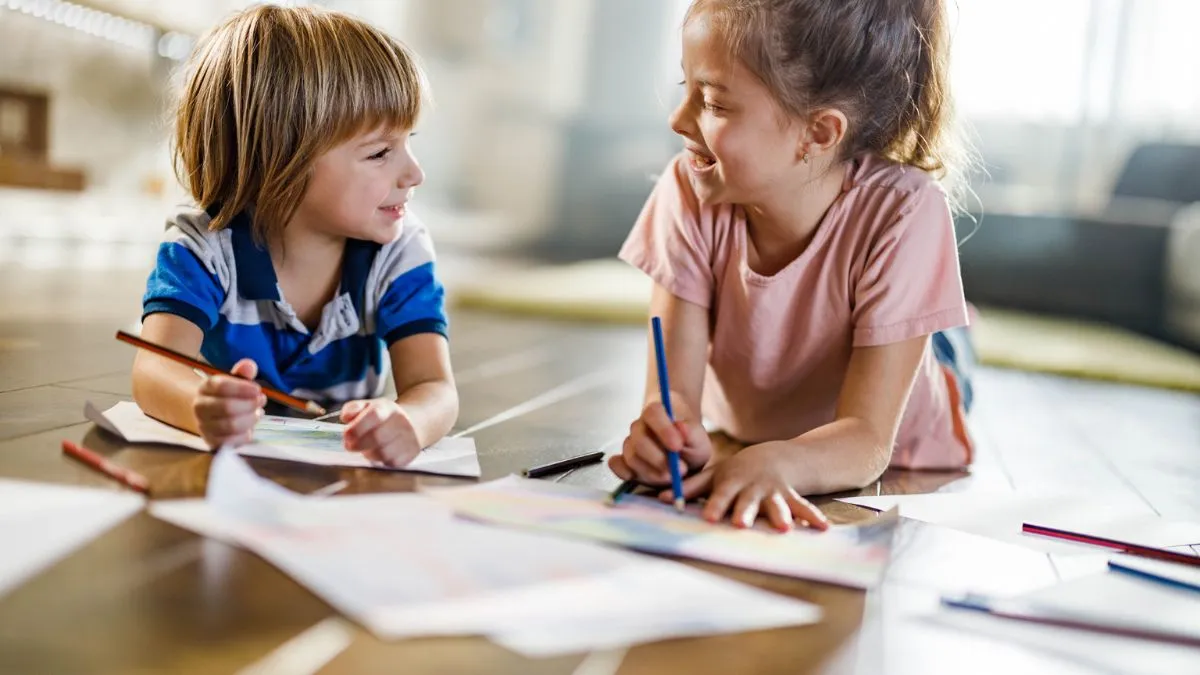
Effective role modeling plays a pivotal role in shaping young children’s emotional intelligence development. Sibling dynamics and behavior modeling within the family unit are vital influencers of a child’s emotional intelligence. Children observe and learn from their siblings, adopting behaviors and responses that shape their emotional understanding and regulation. Positive sibling interactions can teach empathy, conflict resolution, and communication skills, fostering emotional intelligence from an early age.
Community involvement and exposure to leadership examples also greatly impact a child’s emotional intelligence. When children witness community leaders displaying qualities such as empathy, resilience, and effective communication, they’re more likely to internalize these traits and apply them in their own lives.
Cognitive Development
As a young child’s brain develops, it impacts various aspects of their cognitive abilities.
For instance, problem-solving skills are fostered through these neurological changes.
Additionally, memory and attention are heavily influenced by the ongoing cognitive development in early childhood.
Brain Development Impacts
Understanding how brain development impacts cognitive development in young children is essential for comprehending the shapes of emotional intelligence during early childhood. Neurological development plays a pivotal role in emotional regulation, influencing how children perceive and respond to their emotions.
As the brain functions develop, children become better equipped to manage their feelings and interact with others effectively, thereby enhancing their social skills. Research suggests that areas of the brain responsible for emotional processing, such as the amygdala and prefrontal cortex, undergo significant changes during early childhood, shaping how children understand and express emotions.
Studies have shown that children with more advanced brain development in regions related to emotional regulation tend to exhibit higher levels of social skills, such as empathy and cooperation. This highlights the intricate connection between brain development and emotional intelligence in young children.
Problem-Solving Skills Foster
Enhancing problem-solving skills in young children fosters cognitive development by promoting critical thinking and analytical reasoning abilities. When children engage in problem-solving activities, they’re challenged to think critically, analyze information, and develop creative solutions.
By employing problem-solving techniques, children enhance their decision-making skills as they learn to evaluate various options and choose the most effective solution.
Research indicates that problem-solving tasks stimulate cognitive processes, such as memory retention and attention span, which are essential for overall cognitive development. Through these challenges, young children are encouraged to explore different perspectives, think outside the box, and consider alternative solutions.
This not only enhances their cognitive abilities but also fosters a sense of autonomy and self-confidence.
Encouraging children to tackle problems independently helps them develop resilience and perseverance, key qualities that are important for cognitive growth. By nurturing problem-solving skills from a young age, caregivers and educators play a significant role in shaping children’s cognitive development and preparing them for future academic and life challenges.
Memory and Attention Influence
Memory and attention play a pivotal role in shaping cognitive development in young children, influencing their ability to process information and engage in problem-solving tasks effectively. Research indicates that memory retention is closely linked to cognitive development, with children who exhibit strong memory skills often demonstrating higher levels of cognitive functioning.
Additionally, attention span is vital for cognitive growth, as it enables children to focus on tasks, filter out distractions, and retain information effectively. Moreover, the relationship between attention span and emotional regulation is significant in cognitive development. Children with better attention regulation tend to have improved emotional regulation, allowing them to manage their emotions more effectively and navigate social interactions with greater ease.
This connection highlights the importance of developing attention skills in early childhood to support emotional intelligence.
Genetic Factors

Genetic factors play a significant role in shaping the development of emotional intelligence in young children. Research suggests that genetic predisposition influences emotional intelligence by determining the baseline level of emotional awareness and regulation a child may possess.
Inherited traits, such as temperament and sensitivity to emotional cues, can be passed down through generations, impacting how a child perceives and manages emotions. However, it’s essential to note that genetic predisposition isn’t the sole determiner of emotional intelligence; environmental factors also play an important role in its development.
External influences, such as parenting style, social interactions, and early childhood experiences, can either enhance or hinder the expression and understanding of emotions in children with a genetic predisposition for emotional intelligence. Therefore, while genetics provide a foundation, the interplay between inherited traits and external influences ultimately shapes a child’s emotional intelligence during their formative years.
Coping Strategies
Developing effective coping strategies is essential for young children to navigate and manage their emotions in various situations. Coping strategies play an essential role in stress management and emotional regulation, helping children deal with challenges and setbacks effectively. Research suggests that children who are equipped with a diverse set of coping mechanisms exhibit higher emotional intelligence levels and are better equipped to handle the complexities of their feelings.
Stress management is a key component of coping strategies for young children. Teaching them healthy ways to cope with stressors, such as deep breathing exercises, mindfulness techniques, or engaging in physical activities, can empower them to handle stressful situations with resilience. By learning to identify and manage stress early on, children can develop a strong foundation for emotional well-being.
Emotional regulation is another important aspect of coping strategies. Children who can regulate their emotions are better able to express themselves appropriately, maintain self-control, and navigate social interactions successfully. Teaching children how to recognize and label their emotions, practice self-soothing techniques, and seek support when needed can enhance their emotional regulation skills, contributing to their overall emotional intelligence development.
Trauma and Resilience
Understanding how trauma impacts young children’s emotional development is essential in exploring the concept of resilience and its role in fostering emotional well-being. Traumatic experiences can have a profound effect on a child’s emotional intelligence, often leading to difficulties in regulating emotions, forming relationships, and coping with stress.
However, it’s important to note that resilience-building factors play a significant role in mitigating the negative impacts of trauma. Research indicates that supportive relationships, a safe and stable environment, and access to mental health resources are key components in trauma healing and fostering resilience in young children.
In the face of adversity, resilient children demonstrate the ability to bounce back from traumatic experiences, adapt to challenging circumstances, and develop healthy coping mechanisms. By focusing on resilience-building strategies, such as promoting social connections, teaching problem-solving skills, and providing emotional support, caregivers and educators can empower children to navigate through trauma and emerge stronger.
Recognizing the importance of trauma healing and resilience-building is crucial in promoting emotional well-being and fostering healthy emotional development in young children.
Peer Relationships

Peer relationships play an essential role in shaping young children’s emotional intelligence and social development. Understanding friendship dynamics and managing peer interactions are key aspects of emotional regulation and building social skills. Research indicates that positive peer relationships contribute greatly to a child’s emotional well-being and overall development. Children who have strong peer connections tend to exhibit higher levels of emotional intelligence and are better equipped to handle social challenges.
Friendship dynamics within peer groups provide children with opportunities to practice empathy, cooperation, and conflict resolution, which are essential components of emotional regulation. Additionally, peer acceptance fosters a sense of belonging and self-worth, influencing a child’s self-perception and emotional resilience. Children who feel accepted and supported by their peers are more likely to develop confidence in expressing their emotions and forming healthy relationships.
Frequently Asked Questions
How Do Cultural Differences Impact Emotional Intelligence Development in Children?
Cultural practices play a significant role in shaping emotional intelligence in children. Parental influence, combined with societal norms and customs, impacts how emotions are understood and expressed. Understanding these differences is essential for supporting emotional development.
Can Exposure to Media and Technology Affect a Child’s Emotional Intelligence?
Spending excessive screen time can impact your emotions by potentially reducing empathy skills. Research suggests that constant exposure to technology may hinder your ability to understand and connect with others’ feelings, affecting your emotional intelligence development.
Are There Specific Exercises or Activities That Can Improve Emotional Intelligence in Young Children?
Engaging in role playing games can enhance emotional intelligence in young children. Mindfulness exercises promote self-awareness and empathy. Creative expression through art and music fosters emotional understanding. Social interactions provide opportunities to practice emotional regulation and empathy skills.
Can Pets or Animals Play a Role in Developing Emotional Intelligence in Children?
Interacting with pets or animals can greatly impact emotional development in children. Animal therapy has been shown to enhance empathy, communication skills, and overall well-being. Pet interactions offer unique opportunities for empathy building and social connection.
How Does the Physical Environment at Home Influence a Child’s Emotional Intelligence?
Influences from the physical home environment impact emotional intelligence in children. Parental involvement and emotional regulation serve as vital factors. Sibling dynamics also shape social skills development. These elements collectively contribute to a child’s emotional intelligence growth.
Conclusion
To sum up, emotional intelligence in young children is shaped by a combination of factors such as parental influence, social interactions, early childhood experiences, educational environment, role modeling, genetic factors, coping strategies, trauma, and resilience, as well as peer relationships.
By understanding and addressing these factors, parents, educators, and caregivers can help foster the development of emotional intelligence in children. This, in turn, can lead to improved social skills, empathy, and overall emotional well-being.
It’s essential to provide a supportive and nurturing environment that promotes emotional growth from a young age.

Hey there! 👋 I’m a proud mom and passionate writer, sharing my parenting journey. 📝 Join me as I navigate the ups and downs of motherhood, offering tips, advice, and a sprinkle of humor along the way. 🌟

